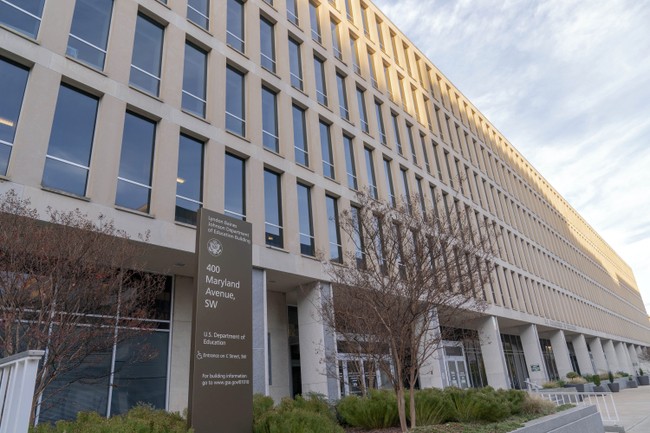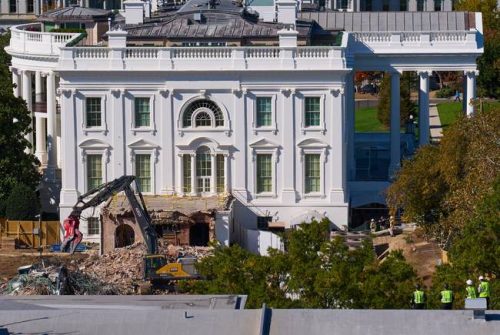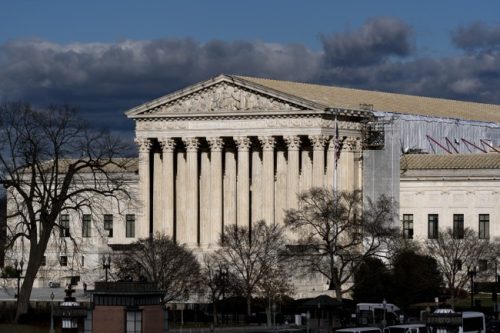The Schumer Shutdown has stretched into weeks, and conservative education advocates say it proves the federal Department of Education is redundant. This piece looks at how federal funding flows, what Parents Defending Education and officials like Alfonso Aguilar are saying, and why some Republicans argue the DOE should be dismantled. You’ll read specific funding numbers, courtroom battles over staffing, and quotes from the people making the case. The goal is to explain why local control supporters see the shutdown as a real-world test of what federal education does and does not do.
We are now three weeks into the Schumer Shutdown, and it is clear Democrats are not rushing to reopen the government. As Senate Minority Whip Katherine Clark (D-MA) said, the Democrats are using Americans’ suffering as “leverage” as they push for trillions in spending on illegal immigrant healthcare and other priorities. That political calculation leaves taxpayers and local schools watching which federal functions actually matter.
One function under scrutiny is the Department of Education. The Trump administration announced a reduction-in-force of roughly 1,300 employees earlier this year, a move a judge temporarily blocked before the Supreme Court later overturned that ruling. President Trump has stated his preference to shrink or eliminate the DOE and return more authority to states and communities.
Office of Management and Budget officials have signaled a broader push to cut back federal bureaucracy to make government work better for the public, with the DOE frequently named as a target. Defending Education and like-minded groups are using the shutdown to argue that many so-called essential federal roles are unnecessary. They point to the fact that local schools keep running even when Washington is gridlocked.
…spending on education has gone up while test scores, literacy rates, and mathematical competency have declined. In Wisconsin, only 31% of public school students are reading on grade level. In Illinois, there are 30 schools where zero students are proficient in reading. The same thing is happening in Baltimore, where at least 13 high schools have zero students tested proficient in literacy (but don’t worry, Maryland officials will make sure those students have access to condoms in elementary schools).
Defending Education argues that, instead of focusing on basics like reading and math, federal dollars have too often supported programs tied to ideology. The group highlights DEI grants, restorative justice initiatives, and curriculum labeled as trauma-informed or antiracist social emotional learning in districts with low proficiency rates. Those examples are used to make the case that federal involvement has not improved outcomes and sometimes shifts priorities away from fundamentals.
Defending Education is aligned with the view of Education Secretary Linda McMahon, who said the Schumer Shutdown shows her department is obsolete. Townhall spoke with Alfonso Aguilar, Senior Director of Federal Affairs for Parents Defending Education (PDE) Action, about the shutdown and the case for ending the DOE. Aguilar emphasized that schools are functioning despite the partisan fight in Washington.
“Schools are functioning well, they’re being operated locally as they normally are. Schools are run locally. They’re open, kids are going to school, and teachers are being paid, “Aguilar said. “Federal funding for school continues to be provided, so nothing has changed. So there’s really no impact.”
Aguilar pointed to a concrete funding schedule as proof federal disruption is limited, noting that states received $9B in Individuals with Disabilities Education Act (IDEA) formula funds on October 1 and the next disbursement is not due until July 1, 2026. “Formula funds and all discretionary funds for this year were awarded by Sept. 30. Schools have received the federal funding and are operating well.” That timing, he argued, reduces the immediate effect of a shutdown on classroom operations.
He placed responsibility for the prolonged shutdown squarely on Democrats. “They passed 13 clean CRs, why oppose this one now? It’s so obvious that they’re playing politics with this,” and added, “The shutdown does have an impact on the economy, other federal services. But not on education.” His point: the political choice is to keep the impasse, not an unavoidable breakdown in schooling.
Aguilar and PDE argue education should be managed at the state and local level, and they lament past federal pushes that encouraged ideology in classrooms. “Students are falling behind and schools have been used sadly, with the encouragement of the federal government, to advance DEI and extreme ideological concepts,” he said. That critique frames dismantling the DOE as a way to refocus on basics and restore local control.
“We’re supportive of the dismantling of the Department of Education. We recognize that there are some limited education…the federal government has some limited education functions. Those are already being transferred to other agencies,” Aguilar said, pointing to civil rights work moving to the Justice Department and federal student loan management shifting toward the Treasury. He urged Congress to pass legislation to make those changes permanent.
https://x.com/EDSecMcMahon/status/1978506556082733510
Aguilar warned there is a risk if Congress does not act: “Future administrations could return those functions to the DOE and, as they’ve done in the past, and expand the department. Which, if that’s a Democrat, they’re most likely to do.” That warning underscores the GOP argument for legislative dismantling rather than temporary administrative moves.
Editor’s Note: The Schumer Shutdown is here. Rather than put the American people first, Chuck Schumer and the radical Democrats forced a government shutdown for healthcare for illegals. They own this.






